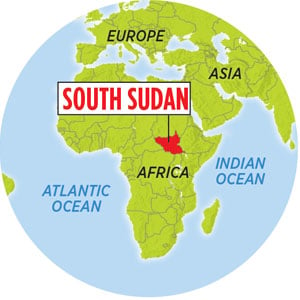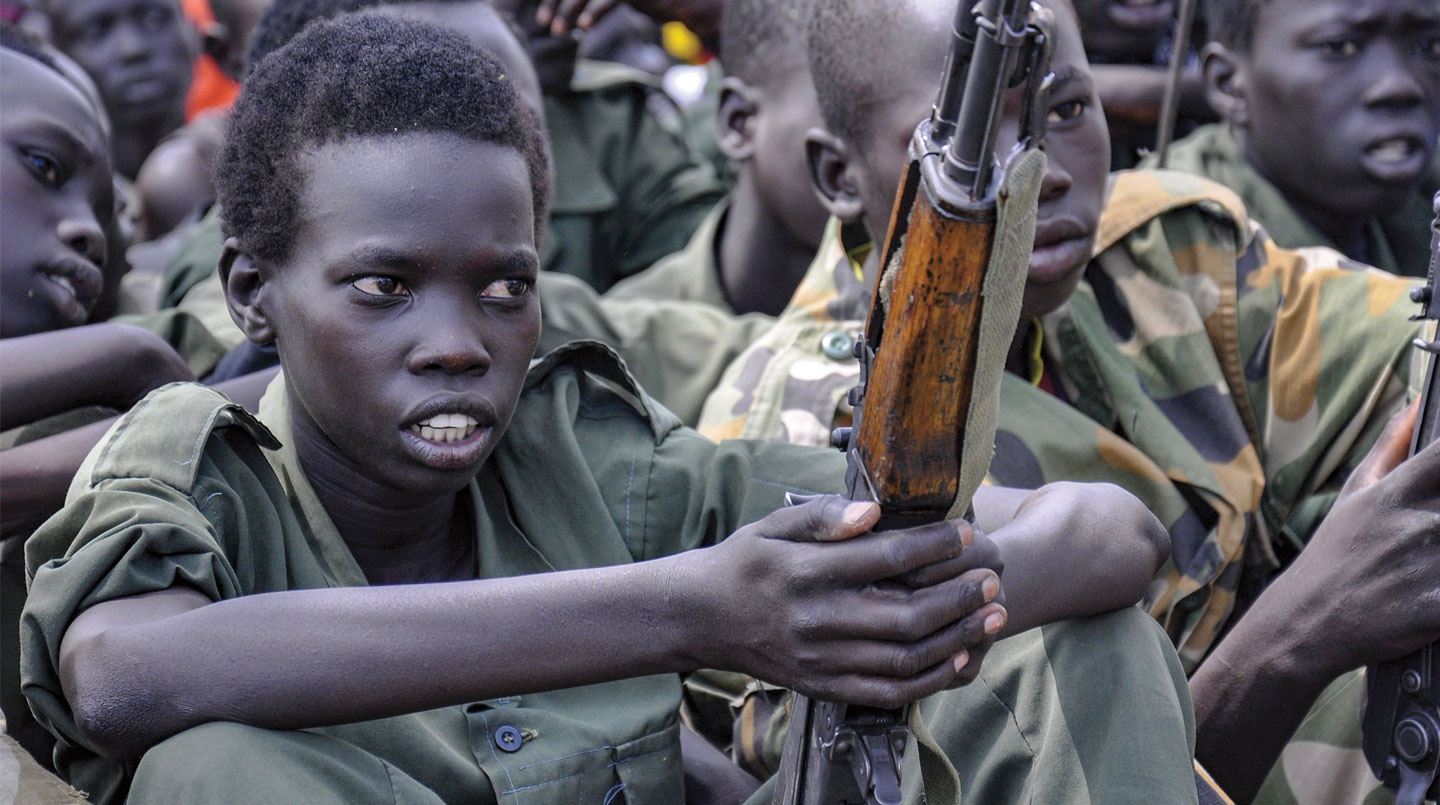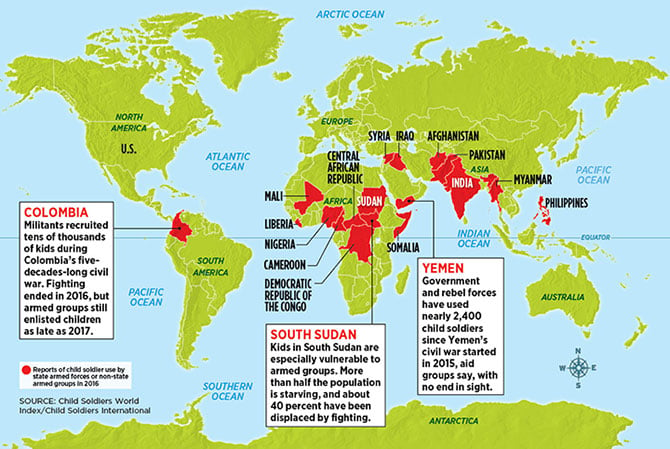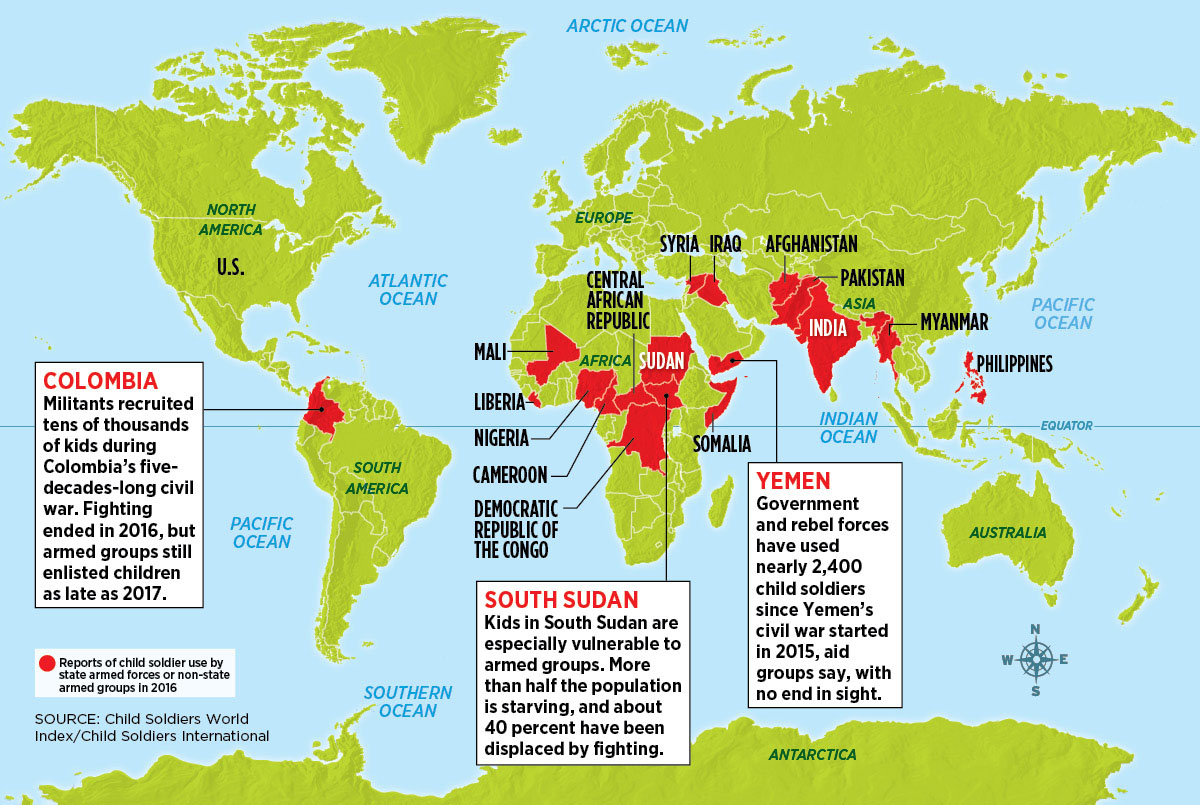
Jim McMahon/Mapman®
Grace* heard the warnings. They came in the form of whispers, passed with alarm from one villager to another.
Soldiers are coming.
Grace was just 10 years old. But already her life in South Sudan had been ripped apart by violence. A bloody civil war had been raging in the central African country. It started in 2013, when rebel forces attempted to overthrow the president. Two years later, the rebels were still clashing with government troops. Grace’s dad had long ago left home to fight.
Despite the chaos swirling around her, Grace kept attending school. She helped look after her 4-year-old sister. And on weekends, she joined her mother on the roadside to sell vegetables.
With no electricity—much less a TV, radio, or phone—in their small mud-and-grass hut, the family depended on word of mouth for news of the war. That’s how they knew that soldiers on both sides were forcing
Soldiers are coming.
Whenever the whispers came, Grace and her family would pack up and flee. They would hide in the wilderness or a different village. They had taken shelter at a farm nearby on the day the war finally caught up with them.










